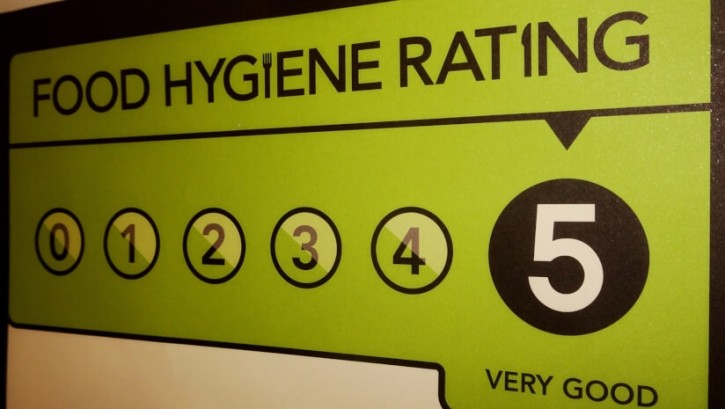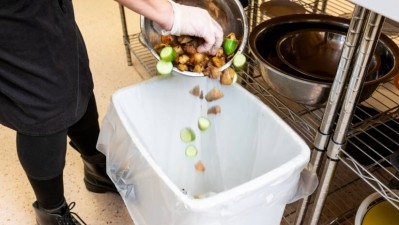FSA shares advice on hygiene best practices for pubs

Key criteria
The Highway Hotel located in Kidlington in Oxfordshire, recently failed to achieve a reasonable hygiene score in line with FSA requirements. Many elements of the site were stated at the ‘major improvement necessary’ level, including the ‘hygienic food handling’ criteria. In order for venues to achieve positive ratings, according to the FSA they must meet the following criteria:
- Hygienic handling of food including preparation, cooking, re-heating, cooling and storage.
- Having appropriate layout ventilation, hand washing facilities and pest control to enable good food hygiene.
Owner of the Unruly Pig in Suffolk, Brendan Padfield shared his views on hygiene best practices, he stated: “I am often surprised that some hospitality venues can have low hygiene ratings with the EHO, yet still be busy with the public, who are none the wiser.”
Speaking on his views around introducing mandatory hygiene rating scores, which were previously called for by The Chartered Institute of Environmental Health (CIEH), Padfield continued: “My view therefore, is that it would be good for our industry to make it compulsory for hygiene ratings to be displayed.
This will help elevate standards across the board.” Padfield explained that he believes compulsory displayed hygiene ratings would make things fairer across the board for operators that do their best to comply with appropriate food standards.
He added: “Why should failing operators benefit economically in their pricing by not investing in hygiene to the required standards? Whether it be the cleanliness of chefs’ whites or assiduous record keeping, hygiene control / adherence is costly and requires constant vigilance and leadership from the front “
The MA spoke to senior communications manager at the Food Standards Agency, Sarah Mitchell-Baker to understand how operators can improve their ratings and maintain hygiene best practice.
FSA advice
Q. What can pubs do to improve their hygiene ratings?
All food businesses can achieve the top rating of five simply by complying with hygiene requirements – the scheme puts no additional requirements on businesses. If they do not get the top rating, the local authority’s food safety officer will explain the improvements that the business needs to make to achieve a higher rating.
Q- What are some key things for operators to get right in this process?
At the inspection, the local authority will use the following three elements to calculate a business’ hygiene rating (please note that inspections cover a broad range of elements, only these three contribute to the hygiene rating itself):
- how hygienically the food is handled – how it is prepared, cooked, re-heated, cooled and stored
- the physical condition of the business –including cleanliness, layout, lighting, ventilation, pest control and other facilities
- how the business manages ways of keeping food safe, looking at processes, training and systems to ensure good hygiene is maintained.
Q- What is the procedure once a low score is given?
Businesses which are given low ratings must make urgent or major improvements to hygiene standards. The local authority food safety officer has several enforcement options available as well as giving advice and guidance to make sure these improvements are made.
The food safety officer will also tell the business how quickly these improvements must be made, and this will depend on the type of issue that needs to be addressed.
Q- What is the Impact a good or bad rating can have on a business?
Businesses can use their ratings to demonstrate to customers that they take food hygiene seriously and this in turn acts as an incentive to businesses with lower standards to improve.
Research with businesses indicates that they regard the food hygiene rating scheme highly and believe that a good rating has a range of positive impacts on consumer perceptions of the business. In the most recent survey businesses said:
- They work hard to maintain or improve their food hygiene rating (England 99%; Northern Ireland 97%; Wales 98%)
- displaying a food hygiene rating proves to consumers that the business takes food hygiene seriously (England 97%; Northern Ireland 96%; Wales 94%).
- good food hygiene ratings were attractive to customers (England: 92%)
- around two-thirds agreed that displaying a food hygiene rating resulted in more customers (England: 67%; Northern Ireland: 65%; Wales: 65%).
Q- Why it is important to comply with the standards set by the FSA?
The FSA is an independent, non-ministerial Government department. We provide guidance for food businesses to make it easier for them to meet their legal obligations under food law and protect public health by ensuring food is safe and is what it says it is.
Licensing solicitors Poppleston Allen, have also provided advice for operators around ensuring hygiene best practices are met and the best ways operators can enforce these practices in business. Read more here.







